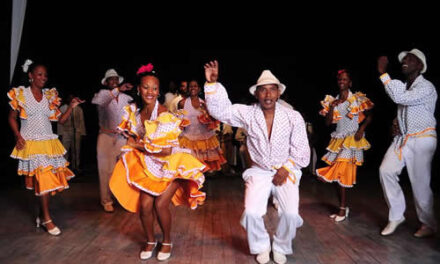A.J. Fletcher Recital Hall on the East Carolina University Campus seats about 300 and was well filled with relatives and students of all description for a matinee performance of Mozart’s Marriage of Figaro on December 1. An able student chamber orchestra used a reduced orchestration, credited to Michael LaRoche and Joey O’Donnell. John O’Brien adroitly conducted from a fine harpsichord literally squeezed into the pit. Sung in English, the production benefited immensely from a fleet and idiomatic translation prepared by John Kramar and John Keene, directors of the School of Music’s Opera Theatre. Their version was much better than the usual awkward-sounding one that is frequently heard. Other companies ought to consider using their translation.
Simple sets were used. Act I began with Figaro lugging a mattress around the stage before he put it down and paced off its ultimate location. At the end of Act I, Figaro’s martial aria about Cherubino’s looming military career was sung in front of the curtain, facilitating a change of the sets from the servants room to a formal room in the palace. Act III was set on a terrace that was readily changed to the garden for Act IV.
O’Brien directed a bubbly and swift overture. The woodwinds and horns were fine and the strings ably kept up the pace. The charming Susanna was sung by soprano Amy Turman, whose excellent voice showed no signs of strain in the small hall. Her acting was believable throughout, whether exasperated by Marcellina’s insults or mistaking Figaro’s attentions to his newly discovered Mother in Act III. Nineteen-year-old baritone Brandon Gaines had his hands full as Figaro. It was announced that his alternate was ill so he wound up singing all three performances–both Saturday productions and previous evening’s as well. He has a promising large voice and a flair for comedy. No doubt his missing breast feeding as a “lost-ling” led to all those hugs when he found out that his “stalker” was his Mother. His first aria, with an angry “On with the Dance, my friend/Measure for measure, I’ll give the beat,” went well, and the lines provide a nice sense of the Kramar & Keene translation. Gaines was also effective in Act III, when he capably projected how crushed he is when it seems that Susanna has betrayed him with the Count.
“Lost-ling” Figaro’s parents were effectively characterized by baritone Andrew Pittman as Dr. Bartolo, the Countess Rosina’s former guardian, and Joan Hazel as his former maid, Marcellina, governess to the Almavia children. Pittman had a ball in the patter aria about the breach of contract suit that he would bring against Figaro. Mezzo-soprano Hazel actually shook her fist in her proto-feminist aria in Act III, rarely heard on stage or in recordings. Tenor William Trice took two roles–the gossipy Don Basilio, music teacher and go-between for the Count, and the stuttering judge, Don Curzio. In both parts, he showed a flair for physical comedy.
The intimidating Count was sung by tall baritone Michael LaRoche whose firm voice, clear diction and stage presence conveyed the air of someone who was used to always getting his way. The great scene in which the Count recounts his discovery of the womanizing page only to find Cherubino under a rug in Susanna’s room was its usual success. His voice was strained by a high-lying passage only once.
Soprano Taquisha Coley was excellent as the Countess Almaviva. Her large voice was well managed and her clear diction stood out in a cast that was unusually strong in that regard. She fully communicated the Countess’s weariness with her husband’s mistreatment and her amusement with the attentions of the lovesick Cherubino. Her famous aria (in an unfamiliar translation) got warm applause.
The larger than life Lothario, Cherubino, was portrayed by mezzo-soprano Angel Androulidakis, who seemed to have Oliver Hardy’s flair for physical comedy combined with the malleable face of Stan Laurel or Dick Van Dyke. She was more believable than most Cherubinos when she donned women’s clothing to hide from the Count in Act III.
Ted Willis was both the most sober Antonio the gardener that I have seen and the least muddy lout; the role is often overplayed. Mezzo-soprano Shana Hammett ably sang the role of Antonio’s daughter, who has caught the eye (at least) of both the Count and Cherubino.
The ECU production was very satisfying with fine ensemble, good voices and exceptional diction from all concerned.











